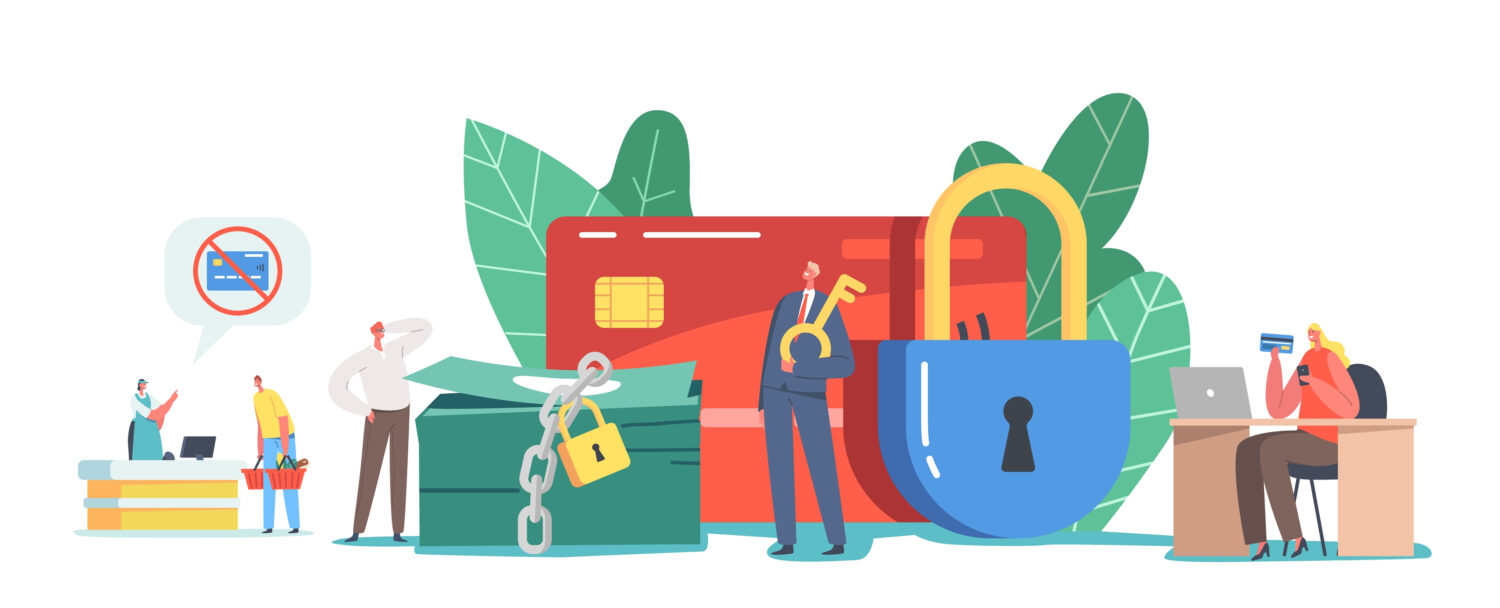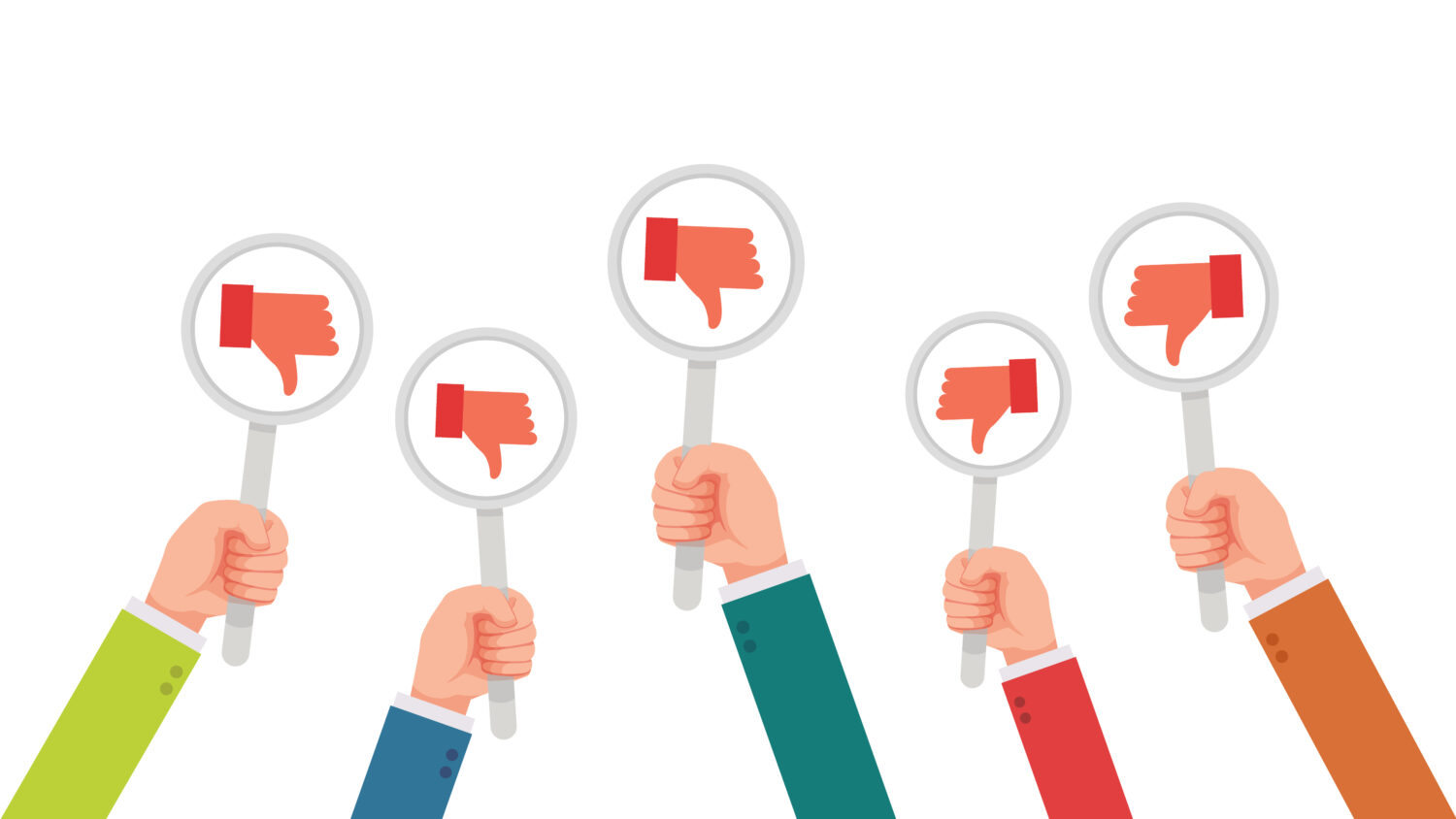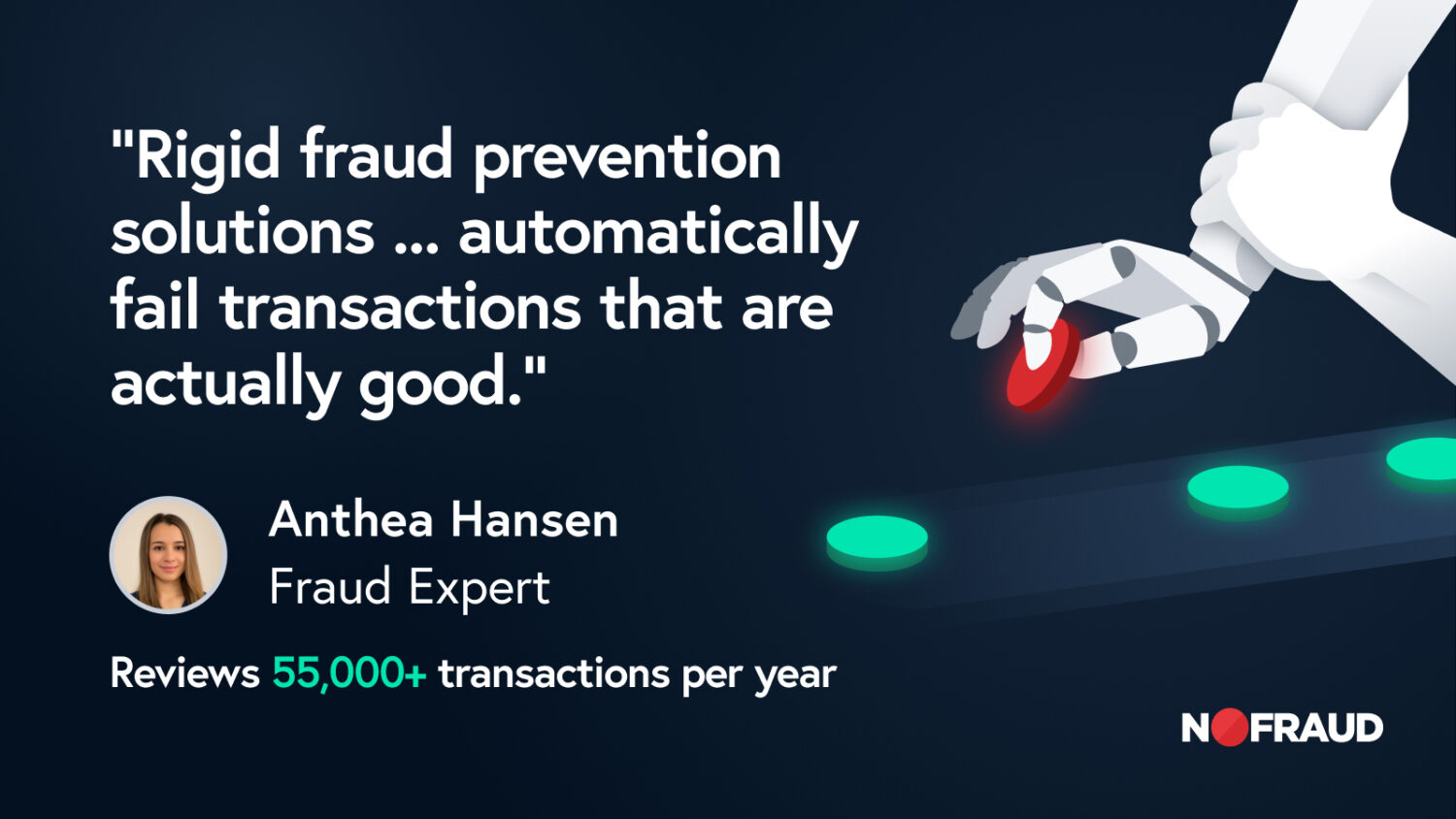Businesses are enjoying a surge in e-sales this season, thanks in large part to the most recent emergence of the omicron Covid variant and the public’s growing reliance on the online marketplace for everything from groceries and other everyday purchases, to seasonal, electronic, automotive and lifestyle items.
Despite this growth, online profitability is not nearly what it could be, due to both increasingly sophisticated internet fraudsters and the growing costs of false declines.
What are False Declines?
The term “false decline” is applied to a situation when a legitimate credit card purchase is erroneously declined and a sale prevented when it was truly legitimate and should have been approved.
These declines are almost always triggered by some form of automated fraud prevention software that seeks out fraud at various levels, multiple times throughout a transaction. Although occurring within just an instant, each point of examination reflects an opportunity for a false decline.

How Common are False Declines?
A recent study cited that the average online store declines almost 3% of all orders because of suspected fraud. Investigations have revealed that almost 60% of all declines should have been approved, and a staggering 15% of US consumers have reported having their attempted purchases falsely declined at one time or another. Why does this happen and why is it of concern to both retailers and customers alike?
It is well-documented that cyber-crime is at an all-time high, and what began with viruses, malware, phishing, and pharming has evolved into a nefarious fraud-riddled arena of increasingly complex, sophisticated, and deceptive scams that are expected to cost businesses a painful $12 billion this year alone. Retailers seeking to limit their exposure to these sorts of attacks have implemented robust anti-fraud filters that are oftentimes overly hermetic in their approach.
Each step of the sales process is examined with some of the most common filters scanning parameters such as customer location, or shipping address, with the most complex among them inspecting up to 500 individual factors. Some companies even set blanket decline conditions based upon country of sales origin. With anti-fraud software programmed to detect mundane details and even the most minute of discrepancies, it is no wonder that legitimate sales are getting caught up in their net. And that net is only expanding.
Since the advent of Covid, online shopping continues to rise, translating into an influx of what are considered “new shoppers” to the online shopping space. Being “new,” they are not recognized as “return customers” by anti-fraud software aimed at identifying risky sales, as there is less data to rely upon for their positive identification and verification purposes. In fact, first-time shoppers at an online store are up to seven times more likely to suffer a false decline on an attempted purchase than a repeat customer.

Another example is with vendors selling high-priced luxury items. Statistically, the rate of declines increases with higher-priced merchandise, as those retailers tend to apply extra-stringent parameters to their anti-fraud filters, yielding more declines than are truly warranted. And who among us hasn’t experienced an embarrassing payment decline while traveling to another city or country? In their quest to protect their online businesses and sales, retailers are effectively harming themselves by embracing protocols that are too discriminatory in practice.
Why does any of this matter? For starters, nobody likes to be falsely accused of something they did not do. A would-be customer may take a false decline very personally, thereby resulting in uncomfortable friction between them and the vendor.
The Costs of False Declines are Staggering
A recent research study revealed that a sobering 33% of American consumers say that they would never shop in a store again that had erroneously declined their purchase. That reflects an immediate sales loss for the retailer, not to mention whatever repeat business that may have transpired over the course of a consumer’s lifetime.
In fact, a documented 40% of customers admit that they would deliberately seek out a retailer’s direct competition to complete the purchase they originally wished to make.

And that’s not all. The age-old adage about the fury of a woman scorned may be applied to a rejected customer, who may take to the phone lines, email, and chat applications to issue complaints, tying up business resources. Or even worse, jilted customers may air their grievances via social media, which can last far longer than the feeling of insult itself, not to mention the untold reputational damage and potential loss of revenue that word of mouth reporting can wreak. While people may talk about the positive experiences they have had, studies show that negative experiences receive almost 50% more attention. What is known as “the negative effect” is, therefore, a real concern and risk to future business.
Statistics demonstrate that false declines are costing businesses up to seventy-five times more than fraud itself, to the tune of almost $120 billion per year. In fact, it can take upwards of twelve approved transactions to recoup the cumulative losses of just one false decline. No business with an online sales component is immune, and with sobering numbers like these, everyone should take notice.






